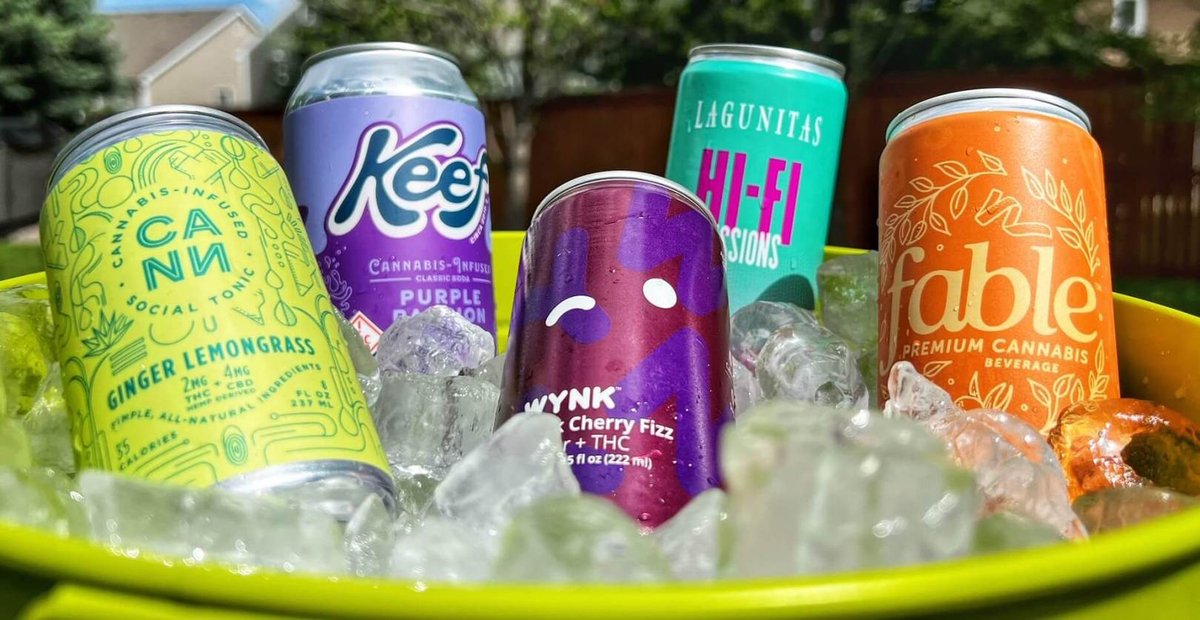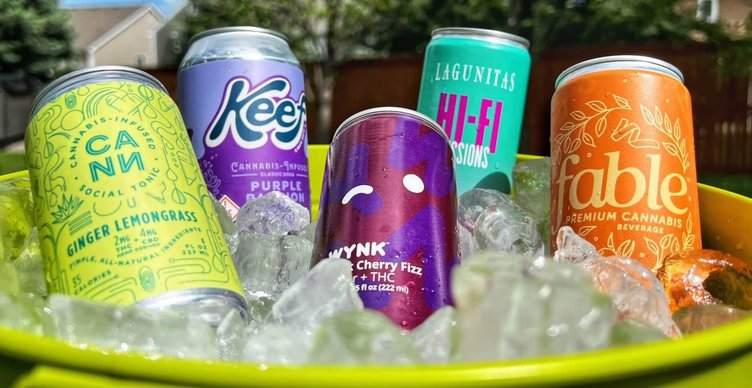The legal purveyors of pot were right.
If Manteca allowed them to operate in the community — three of them have been given the Council’s approval to do so and are moving toward being open for sales in 2025 — they would not be a direct source of cannabis for teens or even tweens.
They stated repeatedly during public hearing after public hearing when pressed about those under 21 being able to buy cannabis products for consumption that the only place that would happen in a retail establishment is at places like smoke shops and such.
The reason for that absolute statement is rooted in the elaborate screening system with devices that read drivers licenses and enters information into a data/screening base.
Before one can gain access to an actual dispensary they must pass the entrance procedure.
That said, they weren’t prophetic enough to note that products such as THC laced beverages would surface in a robust manner in a growing number of convenience stores where they have been sold to teens on a regular basis.
Gov. Gavin Newsom in September signed emergency state regulations that banned “intoxicating hemp” beverages containing THC from being sold anywhere in California except at state licensed cannabis dispensaries.
The ban also applies to gummies and other products that have THC.
THC is shorthand for testrahycannabidol. It is one of two primary chemicals found in cannabis. The other is canabidiol or CBD.
THC can get one high or stoned. CBD doesn’t.
The Centers for Disease Control has issued warnings regarding the impacts of THC especially how it relates to teens.
THC use in teens can cause:
Difficulty in thinking and problem solving.
Problems with memory and learning.
Reduced coordination.
Difficulty maintaining attention.
Problems with school and social life.
Cannabis use also has been linked to social anxiety, depression, and other mental issues.
It can also impair driving.
And in about 30 percent using cannabis are at risk of developing an addiction to its use.
Teens are especially susceptible to long-range issues from regular or heavy use. That’s because their brains are actively developing and, in most cases, will continue to develop until roughly they are 25 years old.
Keep in mind the “bad side” of cannabis — issues related to THC — varies significantly between individuals based on age, genetics, weight, and such. How “potent“ the cannabis product used and the quality are also contributing factors.
And yes, it can indeed not be as bad or no worse than alcohol when it comes to adult use.
That said we are not talking about adults.
A CDC survey in 2022 indicated 6.3 percent of teens used cannabis daily.
The same survey got responses that 30.7 percent of teens said they used cannabis once in the previous 30 days.
Make no mistake about it.
Teens can access marijuana from the black market, illegal home grows, or even adults who procured it legally and decide to share it.
What teens can’t currently do is buy cannabis and other THC products directly from a state-licensed retail outlet.
And up until September it was legal to buy THC laced beverages at various retailers including convenience stores that outnumber alleys in many communities.
It important to keep in mind given the backlash from the producers of THC laced beverages to Newsom’s emergency order.
They basically contend it was overkill.
Producers say the governor should have simply limited the sale of THC beverages in retail locations to those 21 and older.
It is why they are now devising an effort to cozy up to the California Legislature next year to get a law passed and sent to the governor’s desk making it legal to sell THC laced beverages — presumably at retailers the state licenses to sell beer, wine or alcohol — to those 21 and older.
That’s because the governor’s emergency order stopped the sale of all THC laced beverages regardless of age with one huge exception — state licensed cannabis operations to those 21 and older.
If they succeed in negating Newsom’s emergency order, it will undermine the robust safeguards now in place to keep THC-laced beverages under tight control and further erode promises made to voters that the sale of legal cannabis products would not make their way directly to teens from legal businesses in communities.
Convenience stores are the modern equivalent of candy stores of a century or so ago for teens and tweens.
Yes, they sell beer and tobacco products.
But there is a huge difference between a convenience store and a state licensed cannabis dispensary.
With the cannabis dispensary:
There is a tight control on the flow of inventory that can be monitored by various law enforcement agencies.
The screening process that in some cases can be viewed live by law enforcement that also has access to recordings stops the entry of anyone under 21 before the door to the actual dispensary opens.
Shoplifting doesn’t happen as all products are kept behind the counter.
Whoa, you might be thinking to yourself.
Why is the issue of not being able to shoplift a strike against the THC beverage makers argument convenience stores et al should be allowed to sell their products given those 21 and enter are effectively blocked from entering a state licensed dispensary?
It’s because those 21 and under can access the convenience store where they are then able to shoplift or go out the door buying THC laced beverages by relatively lax screening procedures that depend on individual cashiers to enforce.
That can happen with beer and maybe beer and alcohol should only be sold from stores with the same rigid safeguards required at legal cannabis dispensaries, but that isn’t the point.
Legal cannabis sales were allowed on the promise they would be extremely regulated in terms of the product and access.
The state has been enforcing the emergency regulation.
One agency doing so is the California Alcohol Beverage Control Board.
They have been sending undercover agents into stores they license to search for THC beverages that are typically sold in brightly marked containers.
Once they confirm they are being sold, agents inform the store management they can’t be legally sold and do a thorough search of the store and seize the product.
More often than not, store owner or management were not aware of the emergency regulation that is just over two months old.
Compare that enforcement process to what is in place for state-licensed cannabis dispensaries.
It’s like comparing a sieve with Fort Knox.
This column is the opinion of editor, Dennis Wyatt, and does not necessarily represent the opinions of The Bulletin or 209 Multimedia. He can be reached at dwyatt@mantecabulletin.com





